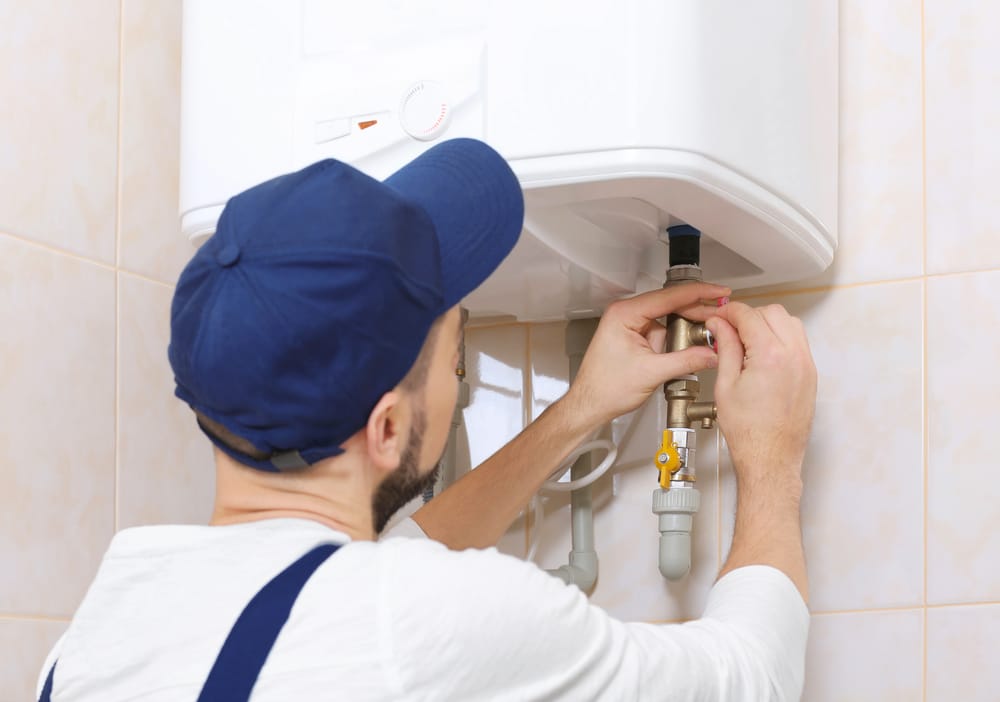A reliable and efficient water heater is an indispensable part of any comfortable home, ensuring a consistent supply of hot water for daily use. If you’re a homeowner, it’s essential to understand the various types of water heaters available, the factors affecting their performance and efficiency, and the proper maintenance required to extend their lifespan.
At Turner Plumbing, your go-to plumber in Genoa, IL, and beyond, we are committed to helping homeowners make informed decisions when it comes to residential water heaters. In this ultimate guide, we will provide an in-depth overview of different types of water heaters, explain essential maintenance practices, and offer guidance on selecting the right water heater replacement to cater to your needs.
Types of Residential Water Heaters: Finding the Perfect Fit
There are several types of water heaters available, each differing in energy efficiency, fuel source, and operating mechanism. Knowing the differences between these various options can help you select the one that best fits your needs:
Storage Tank Water Heaters
Storage tank water heaters are the most common type found in residential homes. These units heat and store a large volume of hot water in an insulated tank, ensuring it’s ready for use when needed. While they’re usually more affordable upfront, they tend to have higher operating costs and energy consumption.
Tankless Water Heaters
Also known as on-demand or instantaneous water heaters, tankless units heat water only as needed, providing a continuous supply of hot water without requiring a storage tank. These water heaters are more energy-efficient than their storage tank counterparts, but their initial purchase and installation costs are typically higher.
Heat Pump Water Heaters
Heat pump water heaters are an energy-efficient option that transfers heat from the surrounding air or ground to the water in the tank. This process is more energy-efficient than traditional electric storage tank models but may be less efficient in cold climates where heat pumps need to work harder to extract heat.
Solar Water Heaters
These eco-friendly water heaters use energy from the sun to heat the water in your home. While solar water heaters can be highly efficient and help reduce your carbon footprint, they may not be suitable for all homes due to factors such as installation cost and geographic location.
Essential Water Heater Maintenance Tips
Routine maintenance of your water heater is crucial for improving efficiency, prolonging its life, and preventing potential issues. Here are some essential maintenance tips to follow:
Drain and Flush the Tank
Sediment buildup inside the tank can reduce the heater’s efficiency and cause premature wear-and-tear. Regularly draining and flushing the tank can help prevent sediment accumulation. To do this, turn off the power to the water heater, attach a hose to the drain valve, and drain the tank. Afterward, briefly open the cold water supply valve to flush out any remaining sediment.
Check the Pressure Relief Valve
The pressure relief valve is a vital safety feature of water heaters that releases excess pressure when the internal pressure becomes too high. Periodically test the valve by turning off the power, placing a bucket under the discharge pipe, and carefully lifting the valve lever. Water should flow out of the discharge pipe, indicating that the valve is working properly.
Inspect and Replace the Anode Rod
The anode rod in a water heater attracts corrosive elements, protecting the tank from rust and corrosion. Regularly inspect the anode rod for signs of wear and replace it every 3-5 years to ensure the tank’s longevity.
Insulate the Tank and Pipes
Adding insulation to your water heater and hot water pipes can significantly improve energy efficiency and reduce heat loss. Use a water heater blanket or insulation kit specifically designed for water heaters to insulate the tank, and use pipe insulation sleeves for the hot water pipes.
Factors to Consider When Replacing Your Water Heater
When selecting a new water heater, consider the following factors:
Energy Efficiency
Energy-efficient water heaters can help reduce your energy consumption and lower your utility bills. Look for models with a high Energy Factor (EF) rating or those certified with the ENERGY STAR label.
Capacity
Choose a water heater with the appropriate capacity for your household’s hot water needs. Storage tank water heaters are sized by their gallon capacity, while tankless units are based on gallons-per-minute (GPM).
Fuel Type
Water heaters are available in various fuel types, such as gas, electric, propane, or solar. Consider the fuel type that best suits your home’s infrastructure, budget, and energy requirements.
Warranty
Last but not least, compare warranties when selecting a water heater. A longer warranty often indicates higher quality and can provide peace of mind.
Final Thoughts
Understanding the different types of residential water heaters, their essential maintenance practices, and the factors to consider when replacing your water heater can help ensure you make well-informed decisions for your home. By selecting the right water heater and maintaining it properly, you can enjoy a reliable supply of hot water while minimizing energy consumption and prolonging the equipment’s lifespan.
For expert guidance and support with water heater maintenance, repair, or replacement in Genoa, IL, and the surrounding areas, count on the experienced team at Turner Plumbing. Our professionals provide exceptional residential plumbing services, including tailored water heater solutions to meet your unique needs.
Don’t wait for an unexpected water heater issue to strike—contact us today to schedule a consultation and ensure your home’s hot water supply is in top condition.


